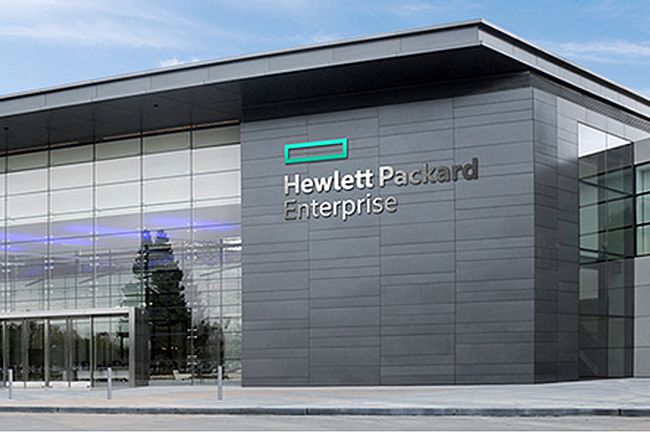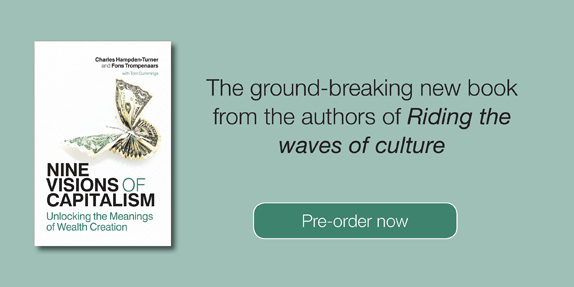Do company take-overs help or harm the economy?
21 September 2015 by Catherine Holdsworth in Business and finance, Nine visions of capitalism
By Charles Hampden-Turner, co-author of Nine visions of capitalism.
The City and Wall Street head the world in mergers, acquisitions and take-overs. The conventional wisdom is that if Company A has more money than Company Z then it should be allowed to take it over. This will help us all since the more successful companies are taking control of the less successful, the very rich are acquiring those of lesser means and therefore the whole economy improves. If you can convince shareholders that they can earn more when Company A takes over Company Z then this will put the target company under better management than before. Those with the most cash to spare are better by definition.
But is this so? Affluent economies are expensive places to make goods and services. Nearly all standard products are cheaper to produce elsewhere. The major exceptions to this rule are innovative products and services. If your product is original you have no competitors for several months or more and can charge for it what the market is prepared to pay. We in the West must innovate or die. There are signs that we are meeting this challenge to some extent but the question arises as to whether large companies that like to acquire others are as innovative as the companies they are gobbling up. The evidence is that most innovation comes from start-ups and relatively small companies. These are not only many times more creative but have much better labour relations, evoke more loyalty, spend more on training their people, think longer term, have better more trusting relationships and serve their customers and communities better. Gallup has found again and again that most citizens like small companies and trust them whereas up to 80% dislike large companies and distrust them. With size there comes bureaucracy, formality, rigidity and pre-programmed behaviour. To have these larger companies gobble up the small may be of very doubtful benefit to these smaller companies, to our economy and to our society.

In any event how can you ‘buy’, ‘own’ or ‘take over’ someone else’s genius? Hewlett Packard bought Autonomy for $1.7 billion, 79% above its market price and had to write down its value by $8.8 billion only months later. This is presently under furious litigation with accusations of deliberate misinformation filling press reports. We know nothing of these details and take sides with neither litigant. We would point out however that the value of information within the heads of genius founders is very difficult to know, hard to value properly and almost impossible to ‘acquire’. In the absence of a good and close relationship with that genius the value of intellectual property will melt away. The 79% premium over market price depended on the sharing of future strategies. How much s/he shares with you is largely optional and you may gain or lose you billions. You can legally mandate that the founder stays in your company for X years but not what will happen during that interval. In any case having received much of your money the genius cannot wait to found another start-up with the money made. Why benefit someone who claims to ‘own you’ and demands that you report to her/him on a regular basis?
Hostile takeovers are especially tricky. You can acquire the real estate, the inventory, the machinery, products in the pipeline, even signed contracts but what the company had in mind for the future could be its most valuable asset and in the face of hostility you may never learn it. You have the bits and pieces but not the values which held these together and gave the company direction. Apparently 79% of the value of Autonomy lay in its future and HP could not afford to fall out with those envisioning that future. Of course there is good reason why large companies are risk-shy. They have mountains of money to lose and any gains would be fractions of that mountain, while start-ups have almost nothing to lose but have bright horizons to explore. The shareholders in large corporations have little appetite for risk. Their pensions are at stake, while the ‘friends, families and fools’ rallying round the founder of a new company relish the wild ride and hope to found a dynasty.
There is also the question of time. A small, privately owned company is thinking how to support the children and grandchildren of its owning family. This is a time-horizon of twenty to forty years. An investment made now could greatly assist your grandchildren. In contrast shareholders in a publicly owned corporation now retain their shares for an average of six to eleven months. They are less investors than traders and will trade on the basis of the latest quarterly report. To reduce risk they have tiny fractions of their portfolios in any one company, care little about that company and may not even know that they ‘owned’ it for a few months last year! It follows that having a private company acquired by a public one might actually harm the economy and greatly shorten its view of the future.
Nearly all investments that aim to grow a company take many years to pay back. R&D, executive development, increased quality, new plant and equipment may justify themselves ten to twenty years hence. In contrast selling your HQ building and leasing it back, buying your own shares so that the price jumps, laying off researchers and cutting the training budget will all produce more money for shareholders this quarter and the longer term damage will not be manifest for a few years, that is after the present CEO retires. His pension may be tied to profits! The company has become a machine for maximizing shareholders’ take and resources are transferred from those who do the actual work to those who collect rents.
Companies who are on an acquisition spree either accumulate a cash mountain so that they can pounce swiftly or they borrow extensively so that their acquisition is heavily in debt. Both tactics may be detrimental the target company and to the economy. The cash mountain is not being re-invested and the debt burdens and even cripples an acquired company which must now concentrate on repayment, not innovation. The truth is that investing in R&D and in the training of your own employees makes you vulnerable to being taken-over. The raider says to your shareholders, ‘would you not like the money being spent on employees in your own pockets now?’ The answer is often ‘yes’ and since those to whom this offer is made include the most senior people in the target company who typically have share options, they have personal reasons for selling out their company! No wonder that Professor Colin Mayer studying take-overs in the UK, especially that of Cadbury by Kraft, found that most of these acquired companies were well managed. It was precisely this which made them vulnerable. They were spending on the future and not today.
What seems to happen to companies who grow by acquisition is that they try to ‘buy the growth’ of others but do not grow organically themselves and the companies they acquire tend to stop growing and become ways of moving money to shareholders. No wonder that Virgin bought back its shares from the public, that Sainsbury’s fought off acquisition, that Hewlett Packard slashed its R&D spending much to the disgust of the founding family and that Chanel has refused all overtures. No wonder that Lidl and Asda are gaining at the expense of Tesco whose shareholders expect a larger slice of the supermarket pie. Privately held companies usually want to use money to create industry and make an industrious future for their families. Publicly held companies want to use industry to make money for their owners and see them enriched even at a cost of employees and customers.

